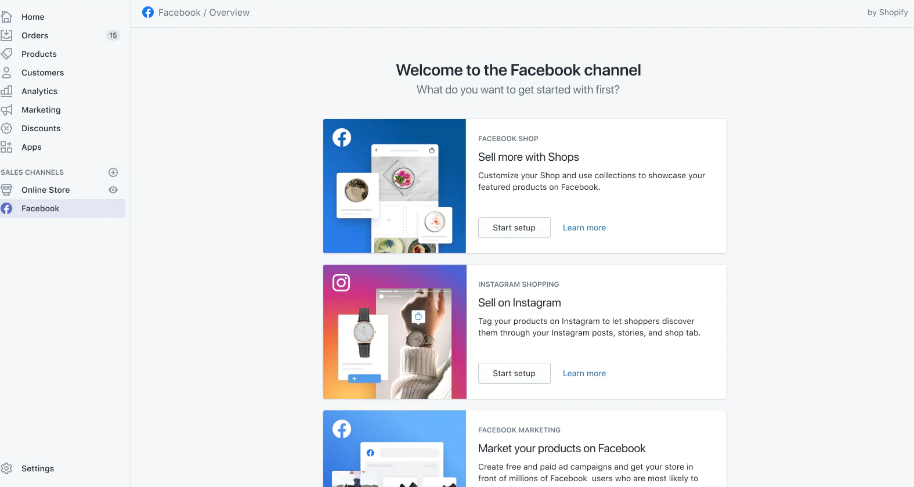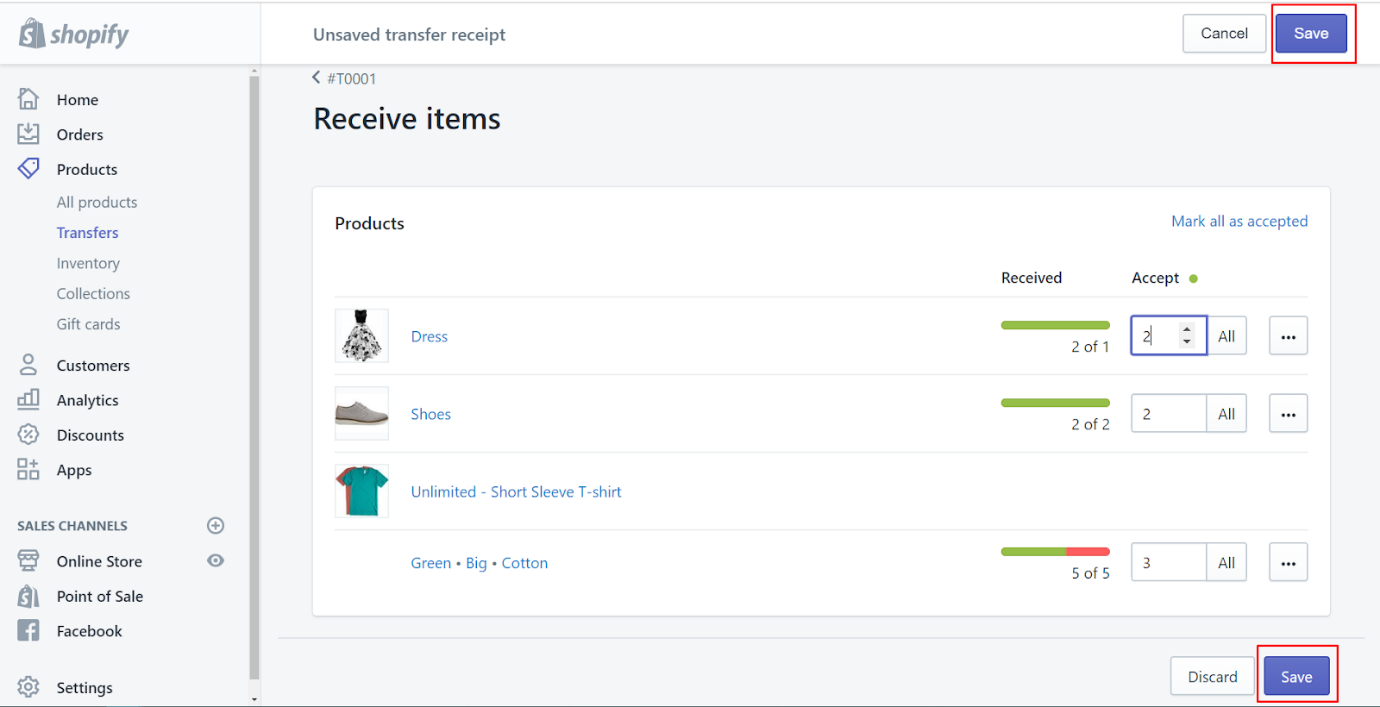Shopify vs Shoplazza: Which option is really best for today’s budding entrepreneurs?
First, it’s worth noting there are a lot of similarities between the two platforms. Both Shoplazza and Shopify are comprehensive ecommerce solutions, designed to help would-be business owners get started in the digital world.
They’re both SaaS options, which means there’s no technology to download and install.
Plus, both tools offer a variety of business models, with options for omnichannel selling, dropshipping, and more. Of course, there are some major differences worth noting too.
Today, we’re going to take a closer look at both Shopify and Shoplazza, to help you make the right choice for your growing company.
In this article:
- What is Shopify? Pros and Cons
- What is Shoplazza? Pros and Cons
- Website and Store Building
- Marketing and Customer Engagement
- Store, Inventory, and Order Management
- Pricing
- Customer Support and Integrations
- Shopify or Shoplazza: Which is Best?
What is Shopify? Pros and Cons
Let’s start with perhaps the better-known solution in this comparison. Shopify is one of the most popular ecommerce platforms in the world today.
Essentially, it’s a comprehensive cloud-based toolkit for website building, store management, order management, and marketing.
With the Shopify commerce platform, small business owners can sell across multiple channels, and even combine online and offline stores, with POS connectivity.
Shopify comes with social media and SEO tools built-in for marketing, a comprehensive app store, and its integrated payment processing tools.
Plus, it allows companies to sell virtually any kind of product, from print-on-demand items to custom physical products, services, and digital downloads.
Pros 👍
- Easy-to-use website builder with plenty of templates
- Options for selling all kinds of products, offline and online
- Scalable back-end environment with coding options
- Order tracking, inventory management, and fulfilment tools
- Comprehensive app marketplace for integrations
- Excellent support, with developer expertise available
- Various secure payment options
Cons 👎
- Can be complicated to scale at first
- Transaction fees can eat into profits
- Switching themes and templates isn’t easy
What is Shoplazza? Pros and Cons
Shoplazza is a slightly younger ecommerce platform than Shopify. It launched in Canada in 2017, with a focus on making store setup simple for business leaders.
The all-in-one platform aims to give businesses everything they need to sell products, market their online store, and manage transactions and order details.
Additionally, while Shopify has apps available for dropshipping, Shoplazza builds dropshipping options directly into its platform.
Shopify is a wonderfully easy-to-use tool, with affordable pricing, diverse payment options, and a range of fulfilment tools, to help you deliver exceptional experiences to customers.
Like Shopify, Shoplazza also has its own app store, where you can access integrations with existing tools.
Pros 👍
- Built-in dropshipping and fulfilment options
- Comprehensive app store for integrations
- Complete staff, inventory and payment management
- Integrated marketing tools for email, social, and SEO
- Affiliate marketing options
- Easy-to-use builder with themes and templates
- Custom shopping carts and checkout pages
Cons 👎
- Fewer integration options than Shopify
- Slightly limited theme options
- Complex developer center
Shopify vs Shoplazza: Website and Store Building
As mentioned above, there’s quite a bit of overlap in the functionality of both Shopify and Shoplazza. However, while Shoplazza is an innovative tool, it does offer slightly fewer options when it comes to building different types of website.
With Shopify, you can create an ecommerce store, blog, online portfolio, service business, and more in the same convenient place.
Shopify supports omnichannel selling across multiple sales channels, with integrations to leading marketplaces, POS tools, and social media channels. It also comes with a convenient website building tool, which mostly eliminates the need for coding.

Startups and business owners can choose from a selection of free and premium themes to bring their site to life, all of which allow for mobile commerce.
You can also dive into the coding on Shopify if you have technical knowledge to make more comprehensive changes. However, unless you integrate with a Shopify or POD solution, you will need to source products yourself.
Shoplazza is also relatively versatile, though it focuses more on dropshipping stores, and DTC ecommerce than anything else.
There are various free and premium themes to choose from, and a drag-and-drop website builder where you can customize your store.

With Shoplazza, you can customize your shopping cart, using intuitive intelligent tools to instantly calculate conversion rates based on your customer’s location.
The AI recommendations even give you tips to improve your profit margins. Shoplazza also benefits from an integrated dropshipping solution, which allows you to instantly access white labelled products from a range of vendors.
Shopify vs Shoplazza: Marketing and Customer Engagement
One great thing about both Shopify and Shoplazza is they don’t just give you the tools you need to create your store, they also provide solutions for promotion and marketing tool.
Shopify comes with integrated marketing features built in, such as access to targeted ads (PPC), search engine optimization tools, and a comprehensive blogging solution.
You can integrate your store with social media channels like Facebook and Instagram, and track crucial data about your campaigns within your Shopify dashboard.
Shopify also has its own email marketing tools, a unified inbox for customer service, and forms for collecting leads.
There are even segmentation and automation tools, to help you personalize communications with customers. Plus, with your Shopify reports, tracking attribution is easy.

As an added benefit, Shopify’s comprehensive app marketplace means you’ll be able to connect your store to all of the marketing solutions you already use.
Shoplazza is also relatively robust when it comes to marketing. The all-in-one toolkit comes with email marketing functionality built-in, with various automations to choose from.
You can implement affiliate marketing tools, to boost brand awareness, and even utilize SEO to help strengthen your appearance on the search engines with product page optimization.

Perhaps the best thing about Shoplazza’s marketing services is how easily the platform integrates with crucial solutions like Google for PPC, and Meta and TikTok for social media marketing.
You can create ads for a range of channels in one place, and track their performance using in-built analytics and reports, just like on Shopify.
Plus, the app market offers a handful of integrations with existing marketing tools too.
Shopify vs Shoplazza: Store, Inventory, and Order Management
As mentioned above, Shopify and Shoplazza both offer companies a variety of ways to manage their store, and boost sales.
Shopify comes with a comprehensive back-end environment, where business leaders can monitor and move inventory across various locations.
You can automate returns and refunds, implement warehouse management tools, and track order fulfillment all at once.
Shopify’s custom automation builder (Shopify Flow) makes it easy to eliminate complicated tasks and repetitive jobs when running your store.
Plus, Shopify Fulfillment, combined with a range of dropshipping and POD apps, means you can pass fulfillment over to third parties.

Shopify also empowers business owners to make intelligent decisions about growth and store management, with a comprehensive analytics system, suitable for tracking taxes, sales, orders, and customers in real-time.
You can even access real-time analytics, as well as business finance tools, such as Shopify Capital to boost your store growth.
Similarly, Shoplazza provides a comprehensive back end to store owners, with customizable staff accounts (up to 100), and in-depth inventory management.
You can track stock levels in real time, edit products in bulk, and integrate a range of payment options to suit your customers.
Plus, Shoplazza comes with built-in supply chain tools, ERP technology, and shipping resources.

In fact, fulfillment is one area where Shoplazza really shines. Thanks to its integrated dropshipping tools, and fulfillment partners, companies can easily ship products to more than 150 regions and countries. There are also plenty of analytical tools to help you grow your store.
Shopify vs Shoplazza: Pricing
Shopify and Shoplazza both offer a variety of plans to choose from, depending on your specific business needs. Shopify’s prices increased in 2023, but customers can still access a free demo, and a three month trial for $1 per month.
The first Shopify plan available for Shopify is the Shopify Starter plan, for $5 per month, which basically allows you to sell on social media and in messengers.
If you want to build a store or ecommerce website with Shopify, you’ll need one of the following:
- Basic Shopify: $39 per month: All the tools you need to run ecommerce businesses, including a website builder, discount codes, plugins, SSL certification, 4 location, 2 staff accounts, marketing tools, credit card payment processing, and blogging tools.
- Shopify: $105 per month: All the features of the Basic plan, with slightly lower transaction fees, 5 locations and 5 staff accounts, professional reports, multi-channel worldwide selling, and shipping discounts.
- Advanced: $399 per month: All the features of the Shopify plan, plus lower transaction fees, 15 staff accounts, gift cards, detailed reporting, and support for managing duties and import taxes worldwide.
- Shopify Plus: The enterprise plan from Shopify, available at a custom price. This package comes with improved uptime, enhanced customization features, greater security options, API access, and specialist integrations.
Shoplazza offers customers a 7-day free trial, followed by a variety of plans such as:
- Basic: $28 per month and a 2% commission for 6 staff accounts, unlimited products, free themes, social media integrations, AI recommendations and more.
- Advanced: $59 per month and 1% commission for all the features of Basic, just with lower commission rates to increase your profits.
- Premier: $99 per month for all the features of Advanced, as well as 15 staff accounts, and a commission rate of only 0.06%
- Enterprise: $189 per month with 0.3% commission rates and 100 staff accounts, as well as all of the features of Premier.
- Pro: $218 per month with a 0.2% commission rate and all the features of Enterprise.
Shopify vs Shoplazza: Customer Support and Integrations
Both Shopify and Shoplazza are highly regarded SaaS solutions, with an excellent approach to customer support and flexibility.
From an integration perspective, Shopify offers access to a comprehensive app market, where any entrepreneur can find tools to help grow their online business.
You can integrate your store with new payment gateways, CRM solutions like Salesforce, dropshipping and POD apps, and more.
Shoplazza also has an online app store. While there aren’t quite as many integration options here as you’ll get from Shopify, the selection is still fantastic. Options include everything from loyalty apps to marketing tools, and store design plugins.
From a customer service perspective, Shopify offers access to a comprehensive help center, where you can find articles on how to start, manage, and grow your store.
Plus, Shopify Experts are available for extra support, and Shopify team members can be accessed through email, chat, and sometimes phone services too (depending on your plan).
Shoplazza has it’s own comprehensive help center and block, as well as a community environment where entrepreneurs can connect with other business owners.
There’s also a handy trademark tool on the platform for reducing copyright issues, and options to access chat or email service.
Shopify or Shoplazza: Which is Best?
Ultimately, the decision of whether to use Shopify or Shoplazza for your online business will hinge on your personal preferences. Both tools are extremely versatile and valuable.
However, Shoplazza may be the ideal choice if you’re looking for a dropshipping-focused platform, with intuitive sales and marketing tools.
Alternatively, Shopify might be a good pick if you’re looking for an all-in-one platform to build virtually any kind of website or store.
The good news is that both platforms offer access to a free demo or trial, so you can test out the functionality and make the choice yourself.




Comments 0 Responses